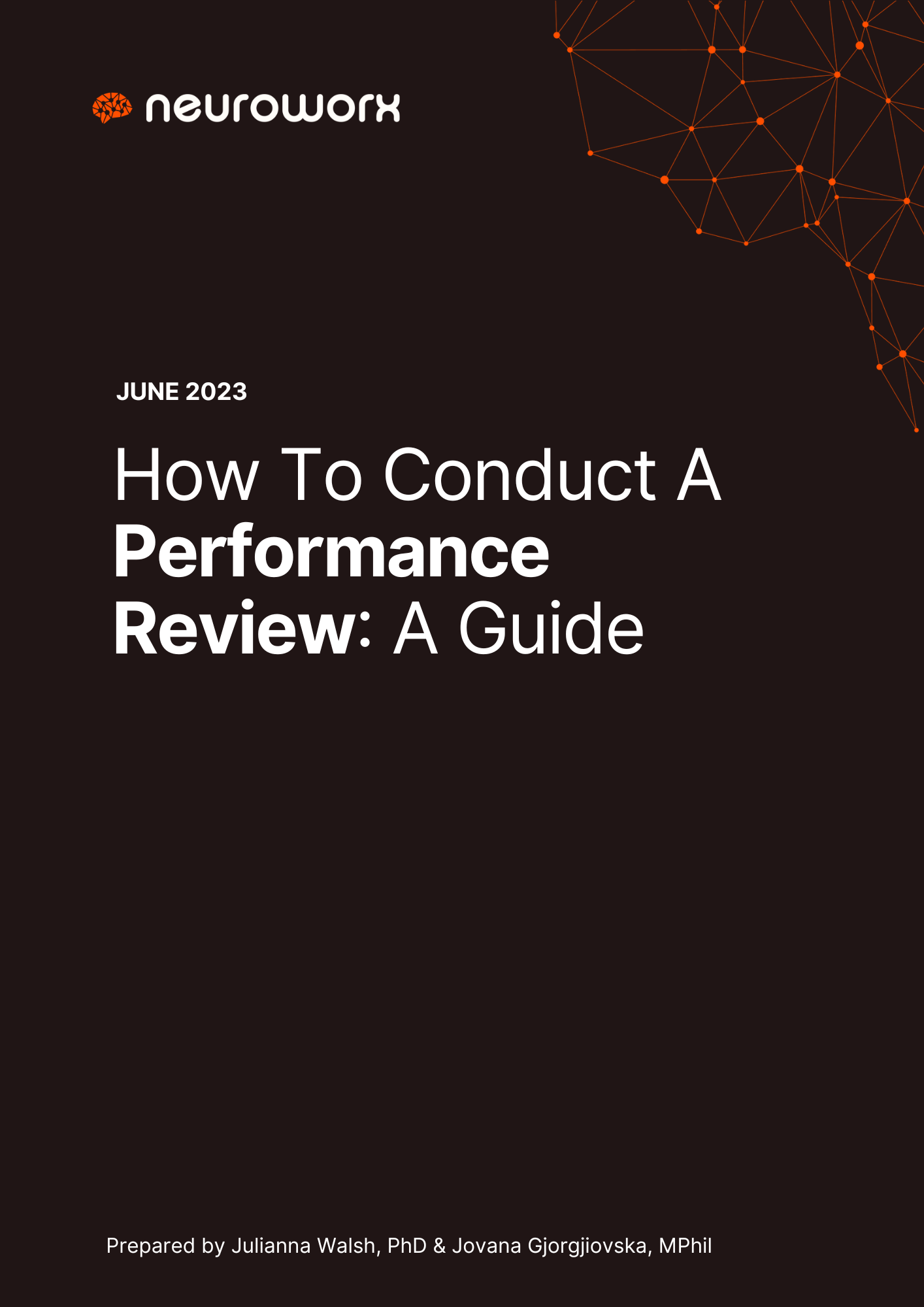How to conduct a performance review: A guide
Learn how to conduct a performance review and promote growth within your organization
What's Inside?
Enabling employees to achieve their full potential and maximize their contributions towards an organization’s targets has long been a primary aim of many leadership and HR teams. Many different forms of performance reviews, appraisals, and broader management cycles have been tested often with disappointing results. This white paper provides an evidence-based approach to designing and implementing a performance management system that works for you. Key points include:
- Pros and cons of using ratings to measure performance
- What to include when identifying criteria for success
- How to embed ongoing feedback into performance management
- Common pitfalls and how to avoid them
- How to adapt a performance management system to your company
What is a performance review?
A performance review is a formal assessment process that evaluates an employee's job performance. It is a crucial performance management tool that helps employees gain valuable insights into their strengths and weaknesses.
Typically conducted on a regular basis, a performance review involves setting performance expectations, identifying areas of improvement, providing feedback, and tracking employee progress.
The ultimate goal of a performance review is to promote employee growth and success in their roles.
Why are performance reviews important?
Performance reviews play a pivotal role in organizational success as they act as a structured mechanism through which employee performance can be systematically evaluated and improved.
They allow both the employer and the employee to gain a holistic understanding of individual contributions to the team's goals.
Through these reviews, strengths and areas for improvement are identified, enabling personalized strategies for career development and performance enhancement.
Performance reviews vs performance appraisals
While the terms "performance review" and "performance appraisal" are often used interchangeably, they're not quite the same.
A performance review is a broader process involving ongoing conversations and feedback about an employee's performance. It focuses on communication, goal-setting, skill development, and overall growth.
On the other hand, a performance appraisal is a more formal, one-time event that evaluates an employee's job performance, typically using a rating system.
Performance appraisals usually involve discussing past achievements, weaknesses, and setting objectives for the future. However, compared to performance reviews, they are less focused on regular communication and ongoing development.
To put it simply, a performance review is an ongoing process, while a performance appraisal is a snapshot of an employee's performance at a specific point in time.
What are the benefits of performance reviews?
When implemented effectively, performance reviews offer a wealth of benefits for both employees and organizations, such as:
- Better employee engagement: regular feedback keeps employees informed about their progress and encourages their active involvement in personal and professional development.
- Higher productivity: setting clear expectations and goals motivates employees to work efficiently and focus on their most important tasks.
- Reduced turnover: employees are likely to stay with a company that invests in their growth and supports their career advancement.
- Improved communication: a culture of continuous feedback helps to sustain open and honest communication between employees and managers, fostering a positive work environment.
- Data-driven decision-making: performance review data can be used to make informed decisions about promotions, salary adjustments, and even workforce planning.
What are the challenges of conducting performance reviews?
Despite their numerous benefits, performance reviews do come with a few challenges:
- Time-consuming: performance reviews can be a lengthy process, requiring significant preparation and time for both managers and employees. It involves setting goals, reviewing performance, providing feedback, and creating development plans.
- Subjectivity and bias: performance reviews may be subject to personal judgments and biases. A manager's perception can greatly influence the evaluation, which can lead to unfair reviews.
- Increased stress: they can be stressful for both managers and employees. Employees might worry about their performance ratings, while managers might face the difficult task of providing negative feedback.
- Limited scope: they typically focus on past performance, not future potential. Traditional reviews may not always reflect an employee's full range of abilities or contributions.
- Negative impact on morale: poorly conducted reviews or negative feedback can demotivate employees and lower morale. It's crucial to manage this process sensitively to avoid these issues.
To overcome these challenges, companies need to invest time and resources in proper training for managers, designing objective performance review systems, and fostering a positive culture that embraces continuous growth and learning.
By doing so, they can harness the power of performance reviews to drive employee success and organizational growth.

Boost your hiring power.
Start using Neuroworx today.
Talk is cheap. We offer a 14-day free trial so you can see our platform for yourselves.
Try for free
